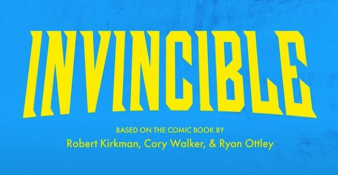How to stand your ground through email
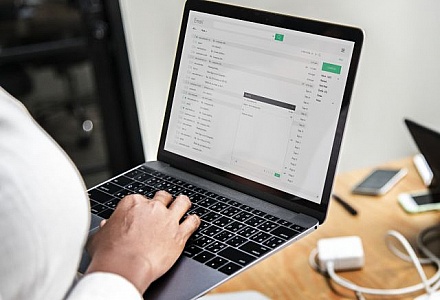
How to write a perfect email is a mystery to many, but it can quickly be solved through easy fixes.
November 18, 2022
Sending an email is scary. It is the odd cross-section between the formalness of an in person conversation and the convenience of a text message. Emailing can be hard to master especially when you are in high school, and e-mails between an unequal power dynamic (i.e. teacher/student) are the hardest of all. Lucky for you, I have the definitive guide on how to make your emails brief, effective and clear. Read this, and you’ll be a lean, mean email sending machine.
1. Make use of subject lines
Subject lines are a great way of making your intentions clear in an email. If you send a particularly lengthy email to a teacher or sponsor, they will have to trudge through the depths of your email to actually get to the point. Using subject lines will save the recipient of your email time, which will make for an overall effective exchange.

Now, math teacher Klaudia Carone knows I need extra help in math before reading the rest of the e-mail.
2. Use active language
Part of standing your ground through email is making your word choice as active and powerful as possible. For example, you are not “just trying to confirm.” You are confirming. You are not “just wondering,” you need an answer right away. Most importantly, if you feel worried that you may not get the answer or thing you need in time, do NOT end your email with “No worries at all!!!!” Use powerful language to advocate for things you need. This is especially important in communicating with members of a group project or team where it may be tough for your voice to be heard.
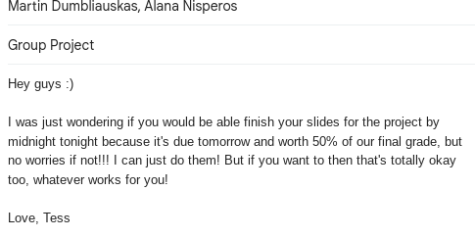
In this email, I sound like a human doormat.
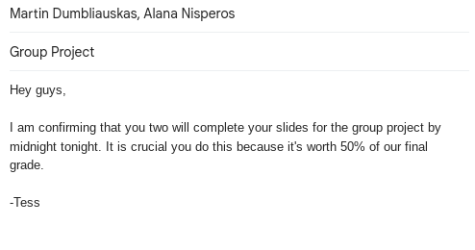
In this email, I use effective word choice to advocate for what I need.
3. Refrain from being overly apologetic
Nobody likes an overly apologetic email for something that is not really a big deal. If you are asking for extra help in math or need an extension on a paper, you are not asking for something that is too big. Teachers are there to help you understand material, and if you are simply too busy to get a quality paper turned in on time, that is not your fault. Even if you are stressed, make sure your email comes across calmly. Never fill your email with excessive sorry’s and excuses. Returning to the last point, advocate for what you need. Chances are, it’s a completely reasonable request.
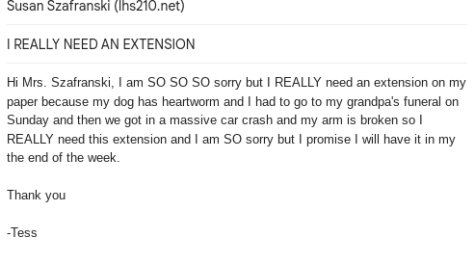
In this email, I sound absolutely ridiculous.
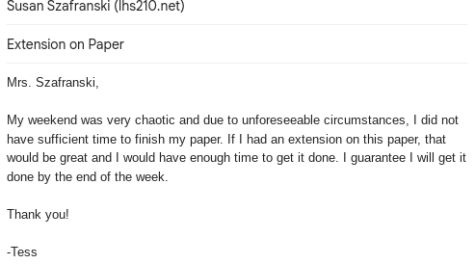
In this email, I sound less neurotic and more mature.
4. Proofread, proofread, proofread!
For emails that are more important, make sure to proofread them to double check that there are no unfortunate grammar or spelling errors. If you are trying to impress someone, run your email through Grammarly to maintain professionalism. But don’t stress about being completely perfect. If you are in a time crunch, I would say the most important thing to double check is to make sure you are using words that sound the same but have different spellings like they’re, their, and there. Those mistakes are easy to make, and hard to come back from.
With the guidance I have given you, I hope you feel more confident when sending an email. It’s a scary world out there, but remember to use your subject lines, powerful word choice, know your worth, proofread and most importantly: steer clear of the “Reply all” button.






